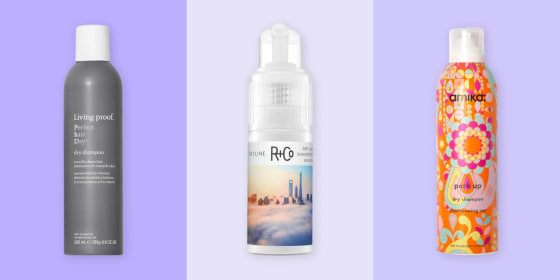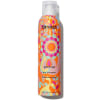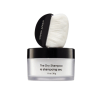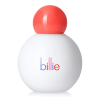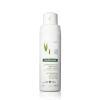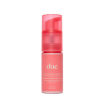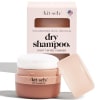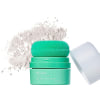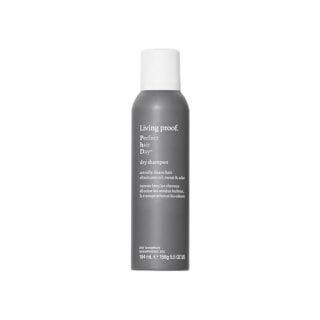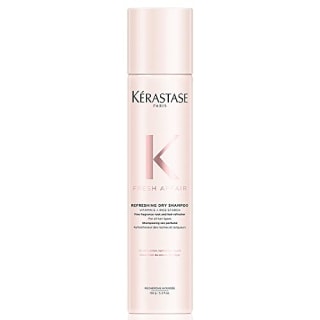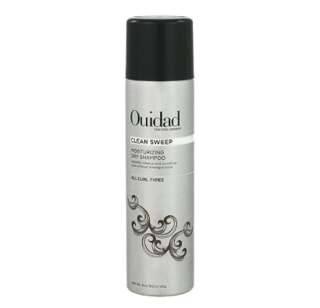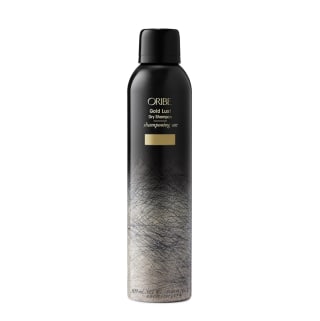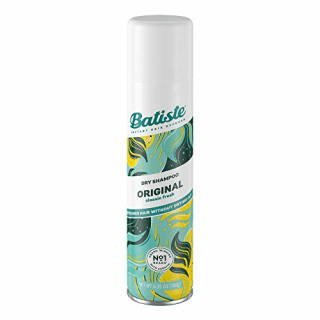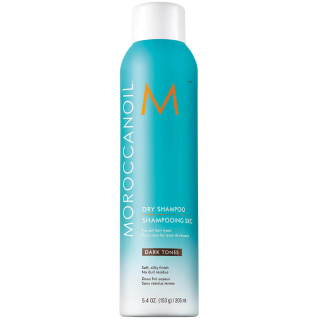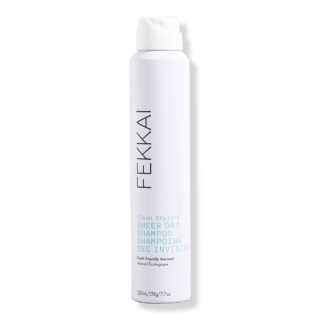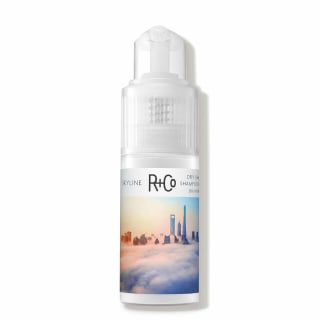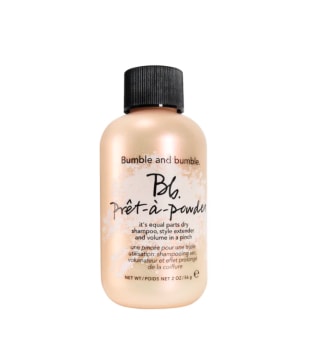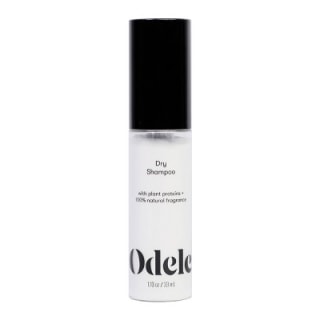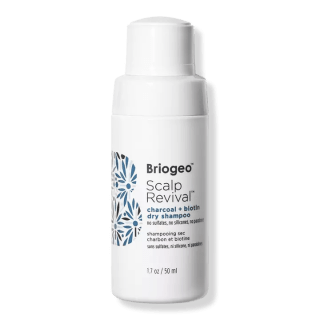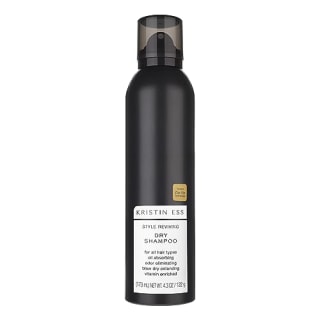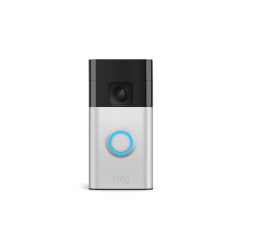It’s hard to make your hair look as fresh as it does on wash day, but washing your hair everyday could strip it of the natural oils it needs to stay healthy, shiny and strong. The weather outside, how often you style your hair and individual hair texture all play a role in how quickly your hair gets oily. Dry shampoo can help soak up oil, dirt and dandruff between wash days or after exercising, extend blowouts and add texture to waves and curls.
We spoke to hairstylists about how to use dry shampoo in between washes and for styling purposes, as well as what to consider when shopping for one. We also compiled a list of expert-recommended and NBC Select staff favorites to consider.
How we picked the best dry shampoos
Incorporating a dry shampoo into your hair care routine has numerous benefits. When shopping for one, experts recommend considering the following factors:
- Formulation: Dry shampoos come in two formulations: aerosol (spray) and powder. The one you choose comes down to personal preference. Generally speaking, spray options are easy to apply and great for on-the-go, but they tend to distribute a lot of product at once. Powder options allow you to control how much product you use so you don’t waste any or go overboard when applying. Still, they can be a bit messy at times, says Brittany Chedeville, stylist and owner of Wild Honey Salon in Philadelphia, Pennsylvania.
- Hair color: Dry shampoos typically have a white appearance regardless of the formulation, which can be noticeable on those with darker hair colors. Some are easily blendable, but tinted versions are available to minimize the risk of it appearing noticeable in your hair.
- Price: Dry shampoos can vary in price. Our list has options as low as $9 and as high as $52.
Want more from NBC Select? Sign up for our newsletter, The Selection, and shop smarter.
The best dry shampoos in 2026
We’ve compiled expert-recommended options alongside NBC Select staff favorites and highly rated dry shampoos that align with our experts’ guidance.
Best aerosol: Amika Perk Up Dry Shampoo
- Even application spray nozzle
- No stiffness or dryness
- made from rice starch
Many experts recommend this dry shampoo because of its efficacy and performance. The best part is that it doesn’t release a cloud of white spray, says stylist and trichologist Courtney Foster, who says it blends easily into her textured hair. It’s also not too heavy on the hair (which means it won’t make it fall flat), and you can use it from your roots to your ends for added volume and texture, according to Jasmine Burnside, a hairstylist based in New York City.
It has rice starch to absorb moisture from the scalp while sea buckthorn berry nourishes the hair, according to the brand. The brand also has another version that is great for all hair types, helps get more volume and is perfect for those who like to go a while between shampoos, says Chedeville.
Scent: notes of vanilla, clover and citrus | Available in tinted options: no | Size: 1.8 ounces, 5.3 ounces and 7.3 ounces | Talc-free: Yes
Most long-lasting: Living Proof Perfect hair Day (PhD) Dry Shampoo
- Long lasting
- Subtle scent
- Suitable for all hair types
- Pricey
Out of all the dry shampoos NBC Select updates editor Mili Godio has tried, this one is her absolute favorite. “It absorbs any oils and greasiness on my scalp and strands, and I can leave the house peacefully knowing I look like I have second-day hair even if it’s really the third or fourth day,” she says. Although it leaves a white cast when she sprays it directly on her hair, it’s easy to shake or comb out for a seamless look, says Godio.
Scent: citrus | Available in tinted options: no | Size: 2.4 ounces, 5.5 ounces and 9.9 ounces | Talc-free: yes
Most lightweight: Kerastase Fresh Affair Dry Shampoo
- Boosts volume
- Subtle scent
- Minimal residue
- Pricey
If you’re looking to cleanse your hair and add volume and texture, consider using this dry shampoo. It’s lightweight, has a subtle fragrance and doesn’t leave behind a residue, making it great for all hair types and colors, says Chedeville.
Scent: fresh with notes of lemon, orange and neroli | Available in tinted options: no | Size: 1.2 ounces and 5.3 ounces | Talc-free: n/a
Best for curly hair: Ouidad Clean Sweep Moisturizing Dry Shampoo
Ouidad’s dry shampoo has a blend of mongongo and rosehip seed oils, which conditions the hair and scalp, according to the brand. NBC Select reporter Zoe Malin loves using this on her dark brown curly hair. “It doesn’t make my hair feel crunchy like some other dry shampoos I’ve tried, and it doesn’t make my hair appear white, which is an issue I’ve had in the past,” she says.
Scent: n/a | Available in tinted options: no | Size: 5 ounces | Talc-free: n/a
Best scented: Oribe Gold Lust Dry Shampoo
- Subtle smell
- Has UV protection
- Pricey
This spray dry shampoo has UV protection, nourishes damaged hair and absorbs dirt, oil and other buildup, making it a “must” in your hair care lineup, according to Tina Malhotra, stylist and owner of Hair by Tina M. This dry shampoo also doesn’t stiffen or add weight to your hair, according to the brand.
Scent: notes of bergamot, jasmine and sandalwood | Available in tinted options: no | Size: 1.5 ounces and 8.5 ounces | Talc-free: yes
Best budget: Batiste Original Dry Shampoo
- Effective for very oily hair
- Budget-friendly
- Can leave hair feeling stiff
- Shake well before use
Foster recommends this Batiste dry shampoo because of its lightweight, vegan formula that mists onto her natural hair to absorb grease. If you worry about it not blending well, it also comes in other colors, 15 additional scents and other formulas, including Sweat Activated and Overnight Deep Cleanse.
Scent: citrus with notes of bergamot, lily and rose | Available in tinted options: three — Brilliant Blonde, Beautiful Brunette, Divine Dark | Size: 3.81 ounces and 7.62 ounces | Talc-free: n/a
Best for UV protection: Moroccanoil Dry Shampoo
- Subtle scent
- Works well on dark hair
- Contains argan oil
- Nothing to note at this time
After trying a few samples of this dry shampoo, former NBC Select editorial operations manager Shari Uyehara quickly became a fan of this formula because of its pleasant scent. It also doesn’t leave a white cast on her dark brown hair, says Uyehara. It’s made with fine rice starches to absorb oil and reduce buildup, plus argan oil to help moisturize the hair.
Scent: floral notes and amber | Available in tinted options: two — Light Tones and Dark Tones | Size: 1.7 ounces and 5.4 ounces | Talc-free: yes
Most natural finish: Fekkai Clean Stylers Sheer Dry Shampoo
- Good for frizzy hair
- Has vitamin E and glycerin
- Nothing to note at this time
When Godio doesn’t want to worry about a visible white residue in her hair, this option is her favorite because it dries clear. “I typically use this one on days when my hair isn’t too greasy or if I need to freshen up my roots because it doesn’t soak up as much oils as other dry shampoos,” says Godio.
Scent: citrus | Available in tinted options: no | Size: 1.7 ounces and 7.7 ounces | Talc-free: yes
Best powder: Crown Affair The Dry Shampoo
- Good for darker hair
- Fluffy brush for targeted use
- Pricey
This option comes in powder form with a mini fluffy brush to help distribute and apply it evenly to your hair. NBC Select associate reporter Bianca Alvarez loves using this dry shampoo because it blends seamlessly into her very dark brown hair and adds more volume to her roots, she says. It uses tapioca starch to absorb oils and persimmon powder (a natural deodorizer) to leave your hair smelling clean and not looking greasy. “Sometimes, I’ll work the powder in with the brush, but I also use my fingers to massage it into my hair so no white areas are visible,” says Alvarez.
Scent: notes of bergamot, yuzu and lemongrass | Available in tinted options: no | Size: 1.1 ounces | Talc-free: yes
Best for instant volume: R+Co Skyline Dry Shampoo Powder
- Long-lasting formula
- Shiny finish
- Quick-acting
- Leaves white cast
- Dispenses lots of product
A little goes a long way with this R+Co powder dry shampoo, which absorbs oils fast and doesn’t leave a white cast, according to Jasmine Burnside, a hairstylist based in New York City.
The formula has jojoba seed oil to help condition hair and add shine, plus burdock root extract (an antioxidant) that removes loose dandruff, according to the brand.
Scent: Notes of bergamot, wild fig, lotus flower, cedarwood, tonka beans and cyclamen | Available in tinted options: No | Size: 1 ounce | Talc-free: n/a
Best for sensitive scalp: Klorane Dry Shampoo with Oat Milk
- Long-lasting formula
- Shiny finish
- Minimal white residue
- Expensive
If you have a sensitive scalp, consider this powder, which has a 4.1-star average rating from over 2,800 reviews on Amazon. It has oat milk to soothe and protect your hair and scalp, plus corn and rice starch to absorb dirt, oil and bad odor, according to the brand. Reviewers say the dry shampoo isn’t too fragranced, so it doesn’t cause any irritation on sensitive scalps. However, you'll need to work the product in thoroughly to avoid a white cast in dark hair, reviewers say. This dry shampoo is also available in an aerosol version and a tinted option.
Scent: n/a | Available in tinted options: only in aerosol formulation for dark hair | Size: 1.7 ounces | Talc-free: n/a
Best for different hair types: Bumble and Bumble Prêt-à-Powder
- Adds volume and texture
- Lightweight
- Minimal buildup
- Pricey
- Might take time to work in
Suitable for all hair types but mainly for straight and wavy hair textures, this dry shampoo can add texture and subtle volume while cleansing the hair with powder. Squeeze the bottle and massage it into your roots or add a small amount to your brush to evenly distribute and work the product into your hair, according to the brand. The brand also has dry shampoos specifically for sweaty hairand dry or damaged hair. This version of the dry shampoo has a 4.1-star average rating from over 1,600 reviews at Sephora.
Scent: n/a | Available in tinted options: No | Size: 0.5 ounces and 2 ounces | Talc-free: n/a
Best for oily scalp: Odele Dry Shampoo
- No synthetic fragrance
- Doesn't need much blending
- Pump may not work if ¾ used
If you constantly deal with an oily scalp, this Odele dry shampoo has a powder pump that releases a plant-based powder to soak up any oil without making your hair fall flat, according to the brand. It is also great for those on the go because it is compact enough to fit into a purse or bag. The dry shampoo has a 4.0-star average rating from over 1,100 reviews at Target.
Scent: notes of cucumber, oakmoss and ylang-ylang | Available in tinted options: no | Size: 1 ounce | Talc-free: n/a
Best for darker hair: Billie Floof Dry Shampoo
- Very fine powder
- Tinted version can stain
Billie’s dry shampoo is an NBC Select staff favorite thanks to its cocoa brown powder texture that blends in with darker hair and creates noticeable volume (the brand also makes a formula for those with lighter hair). “With other dry shampoos, I’ve had to forcefully blend in the product after a spritz to make sure I didn’t have white spots all over my hair (or on my clothes),” says former NBC Select reporter Ambar Pardilla. She says it takes one to three shakes of the dry shampoo to style her hair.
Scent: none | Available in tinted options: two — Light hair and Dark hair | Size: 1.2 ounces | Talc-free: n/a
Best detoxifying: Briogeo Scalp Revival Charcoal + Biotin Dry Shampoo
- Good for sensitive scalps
- Does not leave buildup
- Minimal white residue
- Nothing to note at this time
Support your scalp health with this dry shampoo, which uses ingredients like charcoal to prevent scalp buildup and clogged pores, biotin for hair growth and witch hazel to prevent excess oil production, according to the brand. Reviewers say it absorbs oil and dirt quickly and blends in easily. This dry shampoo has a 4.3-star average rating from over 1,000 reviews on Amazon.
Scent: notes of mint and vanilla | Available in tinted options: no | Size: 1.7 ounces | Talc-free: n/a
Best for lighter hair: Dae Fairy Duster Dry Shampoo
- Absorbs odor
- Does not stiffen up hair
- Travel friendly
- A small spray goes a long way
- Best with lighter colored hair
This non-aerosol dry shampoo, which has a 4.0-star average rating from over 900 reviews at Sephora, absorbs unwanted oil and adds volume to hair with just a few pumps, according to the brand. Reviewers say this is especially great for those with lighter hair because it blends easier into their hair color, but if you have a darker tone or shade, consider massaging it into your hair for a longer time or use a brush to help blend it in. The brand sells a separate brush to apply it, but keep in mind you can also use your fingers to work in the product.
Scent: citrus with notes of orange blossom and vanilla | Available in tinted options: no | Size: 1.06 ounces | Talc-free: yes
Best travel-friendly: Kitsch Volumizing Rice Protein Dry Shampoo- Travel Size
- Good for very dark hair
- Compact
- Quick application
- A small amount goes a long way
NBC Select editorial intern Aksha Mittapalli likes to buy the travel size of this dry shampoo to take it with her when she travels. It’s the only dry shampoo that doesn’t leave a white cast on her black hair or dry out her scalp, she says. “I don’t like washing my hair too often because it robs my hair of the essential oils my scalp needs. But most dry shampoos make my hair feel like straw and make me look like I’m cosplaying someone much older,” says Mittapalli, who has thick, straight hair that’s prone to oil buildup. “This dry shampoo actually lets me occasionally put off a wash day.”
Scent: none | Available in tinted options: yes | Size: 4 ounces | Talc-free: n/a
Best long-lasting: Kristin Ess Style Reviving Dry Shampoo
- Color safe
- For all hair types
- Very fine mist
- Can be drying
This highly rated dry shampoo, which has a 4.3-star average rating from over 1,800 reviews on Amazon, has a subtle floral scent and adds volume without leaving a heavy residue, reviewers say. Plus, it has vitamin C, which helps produce collagen to strengthen your hair, according to the brand. It also works well with dyed, keratin-treated and styled hair, according to Kristin Ess.
Scent: fresh pear | Available in tinted options: yes | Size: 4.3 ounces | Talc-free: n/a
Best for fine hair: Briogeo Style + Treat Non-Aerosol Powder Puff Dry Shampoo
- Travel size
- Vegan
- Application can be messy
This dry shampoo powder is a great option for anyone looking to quickly refresh their hair without the hassle of a spray. It targets excess oil and adds volume, plus has a puff applicator for targeted application. “I love that it’s tinted, so it doesn’t leave a white cast on my dark brown hair,” says Godio. “I’m also a fan of the applicator since it helps me target specific areas.” Its compact packaging, which is the size of a cotton round, lets you easily drop it in your bag and use it for touch-ups as needed throughout the day. For those with darker hair, a bit of extra blending can help make sure you get an even finish, according to the brand.
Scent: none | Available in tinted options: yes | Size: 0.5 ounces | Talc-free: yes
How to shop for dry shampoos
While there are many dry shampoos on the market, whether in spray or powder form, experts recommend considering certain characteristics, including your ingredients and hair type, to help you narrow down your list.
Hair type
Since dry shampoos help absorb oil and provide aesthetic benefits, you should consider your hair type. Below, Chedeville breaks down your hair type.
- Fine hair: You will want to choose something light that possibly has volumizing properties so the dry shampoo doesn’t weigh your hair down.
- Medium hair: Depending on your hair concerns, You can use any dry shampoo. For example, if your hair is very oily, you may want to look for a heavier dry shampoo.
- Thick hair: You may want to use a dry shampoo that doesn’t weigh the hair down or has volumizing properties, as thick hair sometimes has difficulty achieving volume anyway since it can be easily weighed down.
- Coarse hair: You’ll want to look for a dry shampoo that is heavier and has conditioning or frizz-controlling properties.
Hair color
Typically, dry shampoos come out white. However, some options are specifically formulated and tinted for each hair color. If you have light-colored hair, you won’t need to worry about it as much as someone with darker lengths. If you are a brunette, you will want to use a dry shampoo that has a tint to it or that doesn’t have a residue at all, says Chedeville.
Ingredients
The most popular and effective ingredients are rice starch and kaolin clay. These are oil absorbers, which is the main purpose of the shampoo. You’ll also want to look for conditioning agents so your hair doesn’t feel stiff and brittle.
When choosing a dry shampoo, you should also consider the ingredients you want to avoid. Parabens, which are often used to prolong the shelf life of products, have been linked to some health concerns, along with talc, says Chedeville.
Scent
Dry shampoos come in a variety of scents, including fresh, floral and fruity. Your personal preference is the key to deciding which option you choose. However, added fragrances can also irritate some scalps because of their allergies, so be cautious when using them, experts say.
Frequently asked questions
When using an aerosol dry shampoo, hold the spray can about six inches away from your head, spritz and then massage the product onto your scalp.
For powder dry shampoos, sprinkle the product onto your scalp and massage it in to help it blend into your hair and absorb excess grease. However, remember that some spray and powder dry shampoos produce a white cast on your hair that you’ll need to manually comb or shake out.
Although dry shampoo is great for touch-ups, it’s not the perfect substitute for regular shampooing and conditioning. Consider using dry shampoo no more than three times a week to help prevent product buildup, says Foster.
“Dry shampoo will help for a couple of days, but it will not fully remove the build-up,” says Foster. Regular shampooing can remove dirt, debris and oil from the scalp and when skipped, the hair can become dirty and hold odor. So, if your hair feels or looks dirty, it’s probably best to simply wash it instead of piling on products like dry shampoos to reduce the appearance of oiliness, experts say.
“There is a common misconception that ‘over-washing’ your hair leads to more oil production. The truth is, an individual’s oil production is uniquely based on their own sebaceous glands,” says Burnside. Some individuals produce more oil or more quickly than others, so wash your hair when you feel the time is right, she says.
Overall, dry shampoo offers both functional benefits — including absorbing dirt and oil and minimizing the need to shampoo after exercise — and aesthetic ones to help style hair. “It’s also good for people with greasier hair or oily scalps to help absorb the oil and make the hair look less ‘dirty’ between washes,” says Malhotra.
Dry shampoo is not only safe for people with color-treated hair, but it can also extend the life and vibrancy of the color, says Malhotra. Washing your hair too frequently can cause the color to fade quicker, so dry shampoo can help increase the time between washes and preserve your color for longer. Look for products that are alcohol-free because alcohol can fade color faster, says Malhotra.
Some dry shampoos also have moisturizing ingredients like argan oil and keratin, which can help keep your color-treated hair soft and healthy. Always check the label to make sure the dry shampoo is safe for color-treated hair to avoid any damage or fading.
Meet our experts
At NBC Select, we work with experts who have specialized knowledge and authority based on relevant training and/or experience. We also ensure all expert advice and recommendations are made independently and without undisclosed financial conflicts of interest.
- Courtney Foster is a certified trichologist and owner of Courtney Foster Beauty, a hair salon in New York City. Her specialties include cutting, coloring, styling and scalp health.
- Tina Malhotra is a New York City-based hairstylist and owner of Hair By Tina M. Malhotra’s areas of expertise include cutting, coloring, styling and treatments.
- Jasmine Burnside is a New York City-based cosmetologist and hairstylist.
- Brittany Chedeville is a hairstylist and co-owner of Wild Honey Salon in Philadelphia, Pennsylvania.
Why trust NBC Select?
Mili Godio is an updates editor at NBC Select, who has covered skin care and wellness topics since 2021. Bianca Alvarez is an associate reporter covering skin care, hair care and gift guides. For this story, they interviewed hairstylists and shared their recommendations for the best dry shampoos to shop. They also included highly rated options that align with experts’ guidance..
Catch up on NBC Select’s in-depth coverage of tech and tools, wellness and more, and follow us on Facebook, Instagram, Twitter and TikTok to stay up to date.


